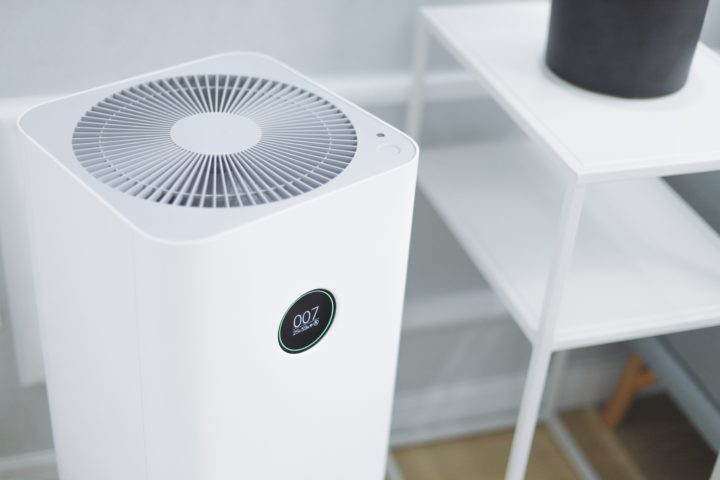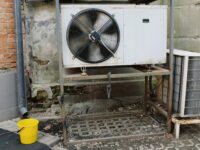HVAC systems are necessary all year; they keep us warm in the cold winter months and cool in the summer. Continuous use of this kind puts an air conditioner under a lot of stress, and it might finally fail. To avoid this, it’s a good idea to undertake periodic HVAC maintenance and discover a problem before it becomes serious, causing you to need to contact a Boise AC replacement company (or a company wherever you are based) to fit a new one for you!
To that end, here is a helpful and thorough guide to assist you in correctly and stress-free maintaining your HVAC system.
Change the Filter
A filthy air filter is one of the most obvious causes of air conditioner maintenance. Changing the filter is one of the most simple ways to increase the air conditioner’s effectiveness, save heating expenses, and lessen the probability of needing repairs.
Make sure your filter isn’t filthy or blocked once a month. If that’s the case, it’s a good idea to give it a nice wash and blow it dry. When it comes to the filter replacement, once every three months should be enough. If it appears to be filthier than normal, change it right away, especially if your family has dogs.
Seek Professional Help
A check-up entails a visit from an HVAC expert who will inspect the HVAC system and ensure that it is operating at peak efficiency. The inspection may include verifying that the fan is operating properly, cleaning the coils, examining (and perhaps replacing) the air filter, checking the refrigerant level, and checking for leaks in the exchanger, depending on the specialist involved. The folks at bluewaterclimatecontrol.com recommend a professional check-up at least once a year to ensure that your HVAC system does not fail when you need it most during the hot summer and cold winter months. This will guarantee that your heater and air conditioner are ready for the approaching seasons, as well as assist you to extend the life of your HVAC system.
Condensing Unit Cleaning
During the hot summer months, most air conditioners feature an external condensing unit/heat pump with a fan on top to distribute heat. Because the metal fins of the condensing unit are frequently clogged with debris, pollen, and grime, you should spray the exterior of the unit with a water hose every season to keep it clean and well-functioning. However, do not use a pressure washer to clean your device since it will permanently harm it.
Keep the HVAC Environment Clean
Keeping the space surrounding your indoor HVAC unit clear and clutter-free improves the quality and safety of the device. The more items you have lying about, the more surface area there is for the dust to accumulate and finally enter the vent system. Clutter also inhibits air circulation in the nearby region, which is detrimental to the effectiveness of the system. Clutter may be a fire and slip hazard, as well as complicate repairs and proper maintenance. You may wish to do some research and consider Potomac MD air conditioning service, or a similar company in your area, to help keep your HVAC clutter-free and running smoothly.
Be Mindful of Your Home Temperature
Maintaining your HVAC system entails keeping it at a suitable temperature and not using it as much when you don’t really need it. Instead, you may install a programmable thermostat to change the temperature automatically at different times of the day. When you are not in the house, the system will run less frequently, consume less electricity, and last longer.
Think about the Size of Your HVAC System
When considering purchasing an air conditioner, the first thing to consider is the number of cubic feet that the air conditioner will cool or warm. When purchasing a new air conditioner or updating your house, this is very important. If your air conditioner is sized too tiny for your home, it will work too hard to cool the air, wear out faster, and struggle to keep up with the thermostat’s demands, resulting in its deterioration over a short period of time.
Strange Sounds and Smells
If your HVAC system is experiencing many problems, rest certain that it will not give up easily. They do, however, create audible and olfactory symptoms of a malfunctioning system, such as abnormal noises and foul odors. Be aware of puffing or stuttering noises, which might indicate a problem with the moving parts. You should also act quickly if you detect a prolonged burning stench emanating from your heating system. Finally, if you detect weird noises or scents, get your HVAC system examined by a professional.
An HVAC system’s typical lifespan is between 15 and 25 years. The type of system, the brand, and the regularity of maintenance are all factors that might affect the schedule. You can extend the life of your heating and cooling system and keep it running at a greater efficiency by properly maintaining it. We hope this article will help you in the mission of keeping your HVAC running effectively and smoothly.

















I see you’ve mentioned how important it is to change air filters regularly — that’s great. But be careful when choosing a new filter for your AC. Filters with a MERV rating higher than 13 restricts airflow, which could make your AC system work harder and consume more energy.
The best MERV rating for a home is somewhere between 7-12. These filters will improve indoor air quality without increasing energy consumption and blasting your system.